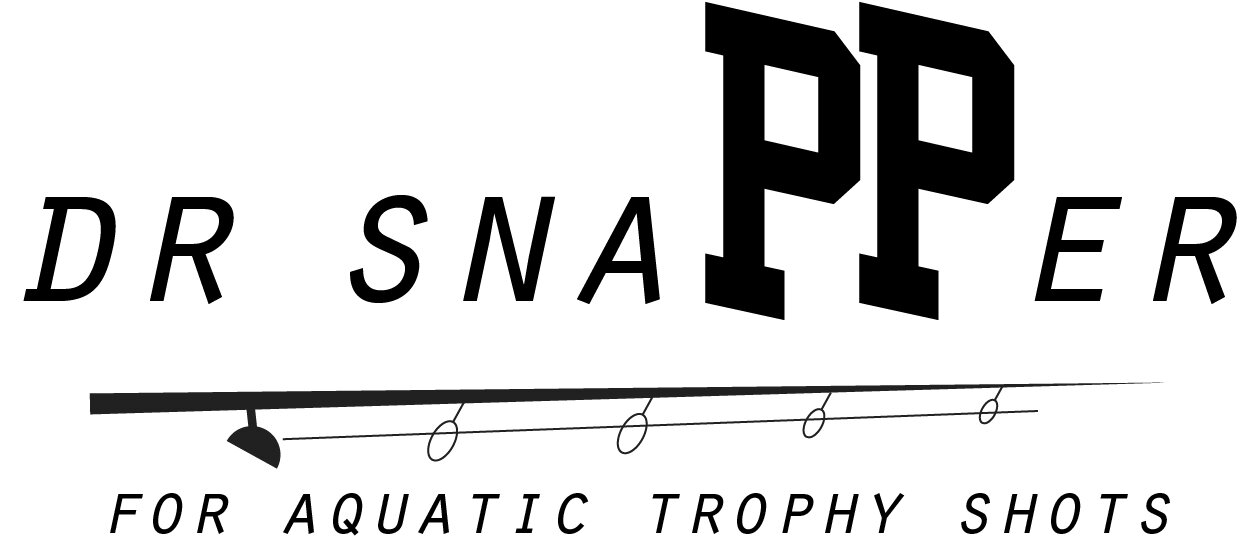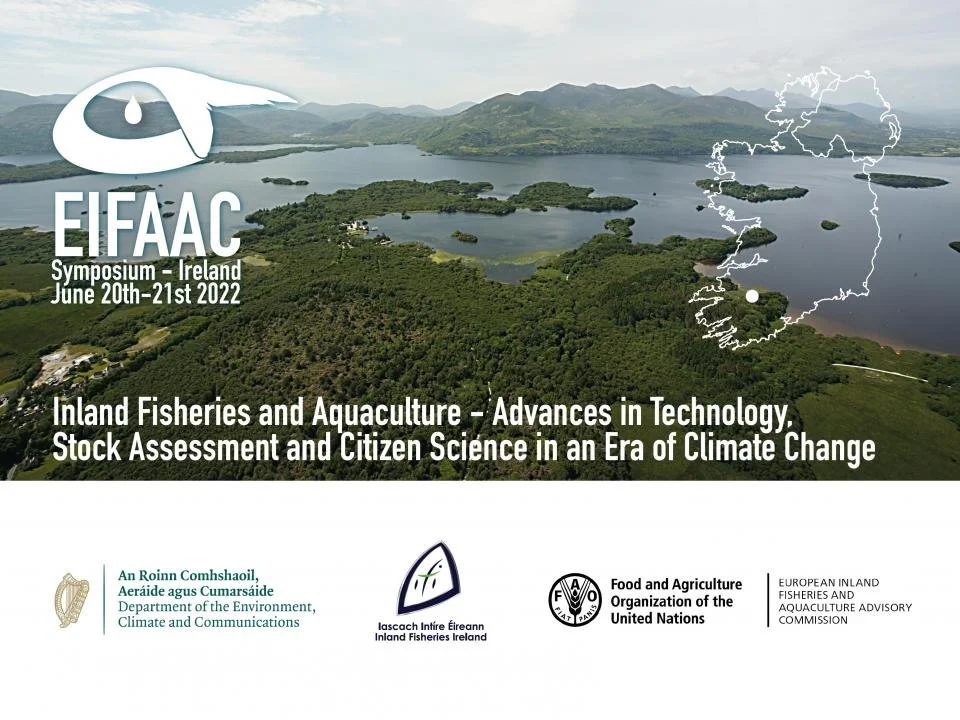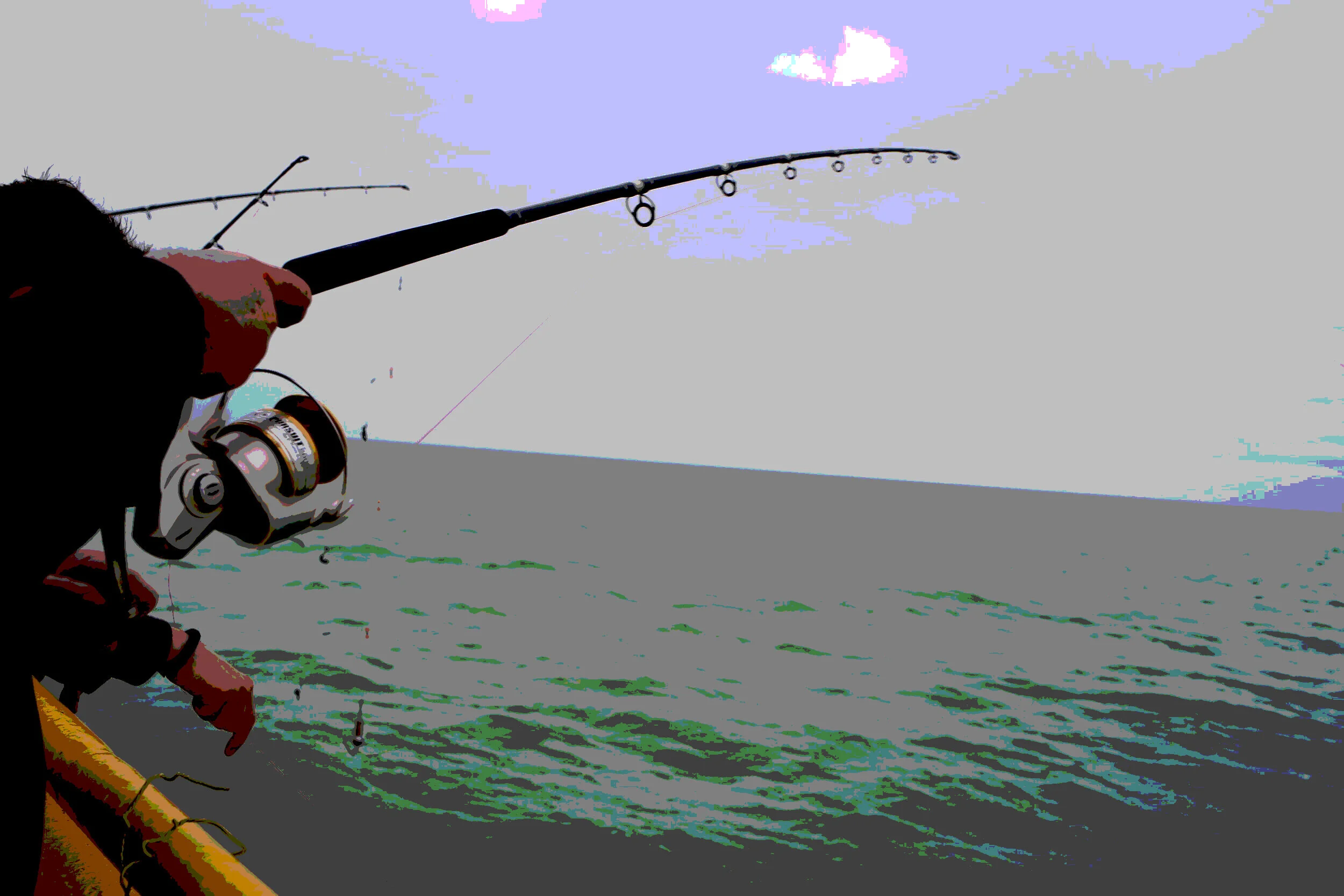Interesting symposium is coming up in Ireland
A very interesting inland fisheries symposium is coming up in Ireland next week. Keep your eyes peeled for drsnapper’s contribution. The slogan of the symposium is: "Inland Fisheries and Aquaculture - Advances in Technology, Stock Assessment and Citizen Science in an Era of Climate Change". There are 5 theme sessions with invited contributions (I have submitted a piece under Theme 4 - Citizen Science):
Theme 1: Inland fish stock assessment
Quantitative approaches to assessment and management of inland fisheries and fish stocks, with a focus on:
Data collection and monitoring requirements for stock assessment,
Data-limited assessment methods relevant to inland commercial and/or recreational fisheries,
Assessment of predation, e.g., cormorant, impacts on freshwater fish stocks, and
Model-based approaches to inland fisheries management, e.g., MSE, harvest control rules etc.
Theme 2: Developments in freshwater fish monitoring technologies with an emphasis on non-destructive methods
Monitoring fish populations is an essential tool for quantifying population abundance and composition and assessing impacts of anthropogenic pressures. Conventional sampling such as electrofishing and netting surveys (fykes, gill nets, seine nets) and associated equipment can be expensive, difficult to transport and surveys are often limited to those waterbodies with road access or boat slips. Many conventional methods also require handling fish, which can cause stress, injury and sometimes mortality. Relatively new non-destructive sampling methods/technology, such as remote sensing (e.g. hydroacoustics, telemetry), visual observation (e.g. underwater camera, snorkel surveys) and eDNA are becoming increasingly popular. Could these techniques be adopted for routine monitoring programmes, e.g. for Water Framework Directive or Habitats Directive monitoring.
Theme 3: The problems and challenges of climate change and its impacts on inland aquatic resources and fisheries
Inland fisheries provide critical ecosystem services to communities in Europe and worldwide and have important subsistence, cultural, and economic value. However, the freshwater rivers, streams, and lakes that fish occupy are faced with many challenges, including climate change, and have become one of the most threatened ecosystems on the planet. Fish are an important indicator of the health of aquatic ecosystems, and an improved understanding of how they are affected by changing climate conditions is critical to understanding the future of these ecosystems and identifying adaptive management strategies. There are still numerous knowledge gaps related to fish species and climate change (e.g. what can be done to make fish communities resilient to climate change, how do we minimize exposure and sensitivity to climate change and maximize adaptive capacity amid uncertainty; what actions are most likely to be successful in the long term and where should these actions be implemented). There is now a growing body of empirical research and conservation actions that are being employed to tackle these challenging problems. EIFAAC wish to highlight existing research and share experiences related to, but not limited to, approaches to assess impacts of climate change with a focus on species, spatial and habitat vulnerability, thermal performance and tolerance of fish species, mitigation measures and environmental flows.
Theme 4: Citizen science
The involvement of citizens in recording our natural environment has been around for centuries, e.g. amateur meteorologists and ornithologists; however modern-day citizen science with the engagement through technology is a growing movement and this has broadened opportunities to expand our knowledge of the natural environment. Citizen science could offer a potentially cost-effective tool to obtain fishery information over large spatio-temporal scales to support fisheries management, e.g. to contribute to stock assessments in inland waters. EIFAAC wish to highlight existing citizen science initiatives and explore its use as a complementary tool to traditional fishery management methods in inland waters. (Contributions and examples of public participation in scientific research are welcome from a broad range of fields where applicable).
Theme 5: Aquaculture - traditional freshwater systems vs recirculation systems
Aquaculture is one of the world’s fastest growing agri-food sectors and has the potential to provide the world’s population with quality and healthy fish products. Traditional methods of aquaculture production can affect the environment. Environmental restrictions to minimise pollution, focus on sustainability, food safety and cost effectiveness has driven the development of recirculation aquaculture systems. These systems have two advantages: cost effectiveness and reduced environmental impact.
Image courtesy: Inland Fisheries Ireland


